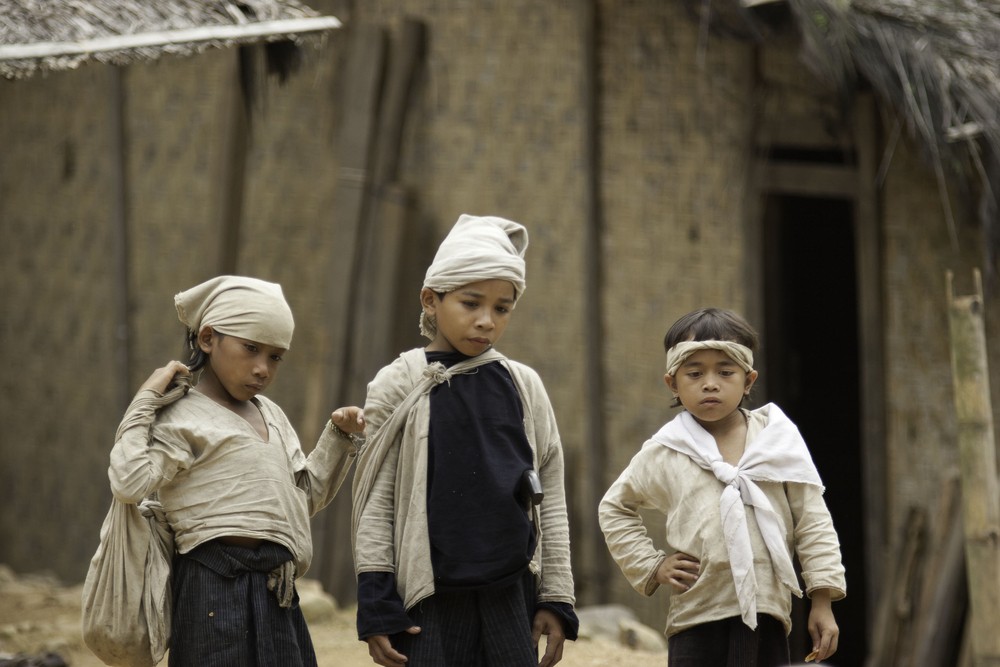Popular Reads
Top Results
Can't find what you're looking for?
View all search resultsPopular Reads
Top Results
Can't find what you're looking for?
View all search resultsLucrative future for Baduy’s naturally dyed ‘tenun aros’
Change text size
Gift Premium Articles
to Anyone
T
raditional tenun aros (woven fabric) produced by the people of Baduy Dalam (inner Baduy) who live in Lebak regency, Banten province, is known to use natural dyes from wood, herbs and spices.
During the 2016 Baduy Festival held recently in Kanekes village, Baduy Dalam artisan Karmaen expressed how special tenun aros is, as it uses natural dyes from plants that grow around the forest.
As a garment traditionally worn draped over the body by tribespeople in Cikeusik, Cibeo and Cikawartana kampungs, tenun aros is distinctively tinted with black and white stripes. This sets their clothing apart from the Baduy Luar (outer Baduy) people, who typically wear black only.
Karmean said the price of tenun aros varied. "Between Rp 300,000 [US$23] to Rp 1,200,000 per piece with dimensions of 2 by 3 square meters," he explained, as quoted by Antara news agency.
(Read also: Baduy people living between tradition and modernization)
Amir, an artisan from Baduy Luar, said tenun was highly sought-after by tourists visiting Baduy from across the country and overseas. Tourists are known to purchase the traditional fabric to take home memories that boast the values of traditional art and culture.
Tenun from Baduy is also coveted by designers from Jakarta, who have attempted to incorporate the traditionally woven fabric into their designs. Amir was hopeful it could become widely known among more people to improve the local economy.
Amir mentioned that the total revenue from sales of Baduy tenun at his outlet ranged between Rp 13 to 15 million per month. Thanks to the festival held on Oct. 28 to 30, his total revenue increased by 70 percent compared to usual.
In its inaugural year, Baduy Festival committee head Sapirin said the festival aimed to market the works of tenun artisans, as well as other products. “We hope that the government will continue to facilitate this market so that Baduy tenun can go global.” (mra/kes)











